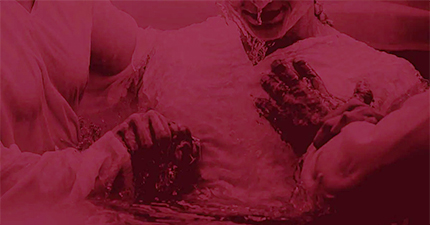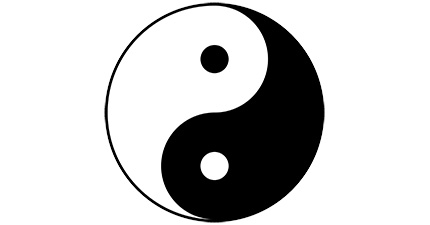In my last article about decolonizing essential dignities, we talked about how the rulership and debilitation scheme within astrology is actually a metaphor for the Roman ideal of citizenship. Rulership was related to citizenship and debilitation to exile. Because citizens were free and represented within the state, planets that were “at home” in their own sign are considered to have the resources and power to do what they like. Planets in detriment are like Romans who are exiled and must give up their privilege.
It is important to note that, in the Roman use of rulership and debilitation as metaphor, that the only type of person astrology is meant to describe is the Roman. Exile is a position of losing citizenship and rulership, a status of maintaining already existing citizenship. Rulerships and debilitations were not made to describe the conditions of foreigners, who were synonymous with slaves, within Rome. Roman cosmology was made for free citizens. It did not describe conditions of being foreign or enslaved. It only describes conditions of privilege and the potential for losing that privilege.
Hegel was a German idealist who basically took a bunch of old ideas from Rome and resurfaced them within modern Germany (during Germany’s unification, Rome was used as a cultural ideal since much of modern day Germany was broken down into different tribes with different cultures). From Plato, Hegel took the idea of the dichotomy (Plato took his ideas on dichotomy from Ethiopia). Dichotomies are ideas which are communicated as two parts of a whole. For example, culture can be seen as both high and low, as commercial or literary, or as popular or esoteric. When you use dichotomies, you are using two opposing frameworks to do comparisons.
One of Hegel’s famous dichotomies was the dichotomy of the master and the slave. For Hegel, there has to be mutual recognition between a master and a slave for a power relation to exist. The master must recognize the slave as inferior and the slave must recognize the master as superior. Hegel’s master comes directly from Rome and describes the condition of citizenship, which is always expressed through land ownership or cultural ownership. However, while Roman cosmology only described persons who had privilege or lost their privilege, Hegel opposes the master with the slave or the other. He writes that the master finds within the other all that is negative. If the master sees himself as light, then he sees the other as dark. If he sees himself as clean, then he sees the other as dirty. If he sees himself as enlightened, then he sees the other as shadowy. When Hegel says that “the truth is in the whole,” he means to say that ideas come dialectically and that both opposing perspectives must be considered to achieve self consciousness.
In his book Black Skin, White Masks Fanon elaborates on Hegel’s master/slave dialectic. Fanon racializes the power relation between the master and the slave and writes that the master does not recognize the slave but only wants labor. While Hegel understood power to be mutual recognition, Fanon theorizes that people who are subjugated are able to do the work of observing, recognizing, and understanding but that people who are in power are unable to see the other. This means that those who are racialized and other seek the recognition of the master but also that they are able to see the master without being seen themselves. For Fanon, power is not mutually recognized by hypervisible in some places and hidden in others.
If we apply Fanon’s framework to the scheme of essential dignities, then planets in their own dignity become the master who cannot recognize the other. Planets that are in detriment, on the other hand, are the racial others who must recognize the master and seek their own recognition through the gaze of the master.
Part of Fanon’s work was around the idea that we are only able to understand the other from its relative position to the master. Within astrology, we often describe the condition of a planet’s detriment in relation to its domicile rulership. We say that a planet is comfortable when at home in its own sign and that the reason a planet is uncomfortable in the sign opposite to its rulership is because it’s too far away from its domain. The conditions of detriment are completely dependent on the language that we choose for rulership. Because the twelve astrological signs are characterized by the essential dignities of the seven planets, we say that Venus (which stands for group cohesion) makes Libra harmonious, just, and civil. On the flip side, we say that Aries becomes disruptive, unjust, and barbaric because Venus debilitates there. Another word for detriment is antithesis. If the domicile rulership is the thesis, then the debilitation is the antithesis.
For both Hegel and Fanon, the master/slave dichotomy is about desire. For Hegel, because masters and slaves mutually recognize each other, they also desire one another. For Fanon, however, others are unable to feel recognized and must seek recognition through the eyes of the master. Because of this, others are unable to be desiring subjects.
Both Hegel and Fanon see desire as action. Hegel sees the act of desire as action in of itself. For Fanon, the other wants the difference between himself and the master to be acknowledged. For this to happen, conflict must happen. Fanon writes that “the former slave needs a challenge to his humanity, he wants a conflict, a riot.” This conflict must happen before the other is able to achieve self consciousness.
If we apply Fanon’s concept of necessary conflict to the scheme of the essential dignities, then the house that a planet rules over is the place where recognition is sought. However, it is the place where the planet experiences its detriment that causes the conflict needed to achieve consciousness.
In other words, as astrologers, we should not only be looking at the houses under a planet’s rulership when considering natal influences and transits but also at the places where it experiences detriment. These places, where the planet is in detriment, is what causes action.
While Fanon’s work is often read as race theory, it is important to note that Fanon was not a race theorist but a revolutionary who wrote about race as one of the tools of imperialism. Fanon always emphasizes the importance of action. He did not want his work to sit inside of white institutions. He saw action, conflict, and violence as necessary to liberation. When we apply Fanon to astrology, we change astrology from a tool of self reflection into a technology for action.
Here is an example of what it might mean to consider the detriment of a planet to be what causes an action (I will use myself as an example since I didn’t ask any clients for permission to share their chart info): when Pluto opposed my Moon in Cancer in my natal sixth house in 2015, I experienced a lot of issues in my job and my body as a result of that job, the sixth house being associated with labor. I went through a lot of changes as a result. However, the issues that caused my changes to my relationship to labor during that time did not come from the jobs I had but from my experiences with marginalization (house twelve). My twelfth house is in Capricorn, where the Moon finds its detriment. The things that caused me to experience conflict and take action were not coming from issues around labor but from issues around marginalization.
Another example: since we are using Fanon, let’s use his chart. When Fanon’s Saturn returned, he became active in the Algerian revolution. Saturn rules over Fanon’s seventh and eighth houses, meaning that the revolution might be an expression of how Fanon sought social identity as an Algerian during revolution. However, Saturn finds detriment in Fanon’s first and second houses. Fanon’s own identity and values are what causes him to take action.
This technique of considering the opposing houses is not actually that new. Signs develop meaning through their relative positions to one another. Many astrologers actually already either consider the houses opposite to the ones that they’re looking at when describing it or tend to describe the houses according to their shared meanings across an axis. The technique that I’m proposing of considering the house opposite to a planet’s rulership when considering its influence is not as new or experimental as it can, at first, appear. The only thing that is new is the language that I’m suggesting we use when looking at oppositions, when the detriment being the thing that inspires action and the rulership being the place where recognition is sought.
In my next article about decolonizing essential dignities, I’ll demonstrate how the consideration of detriments contributes to a postmodern or transnational astrology in which identities are not constructed through cultural belonging but cultural displacement.
1 of 19
>>>


